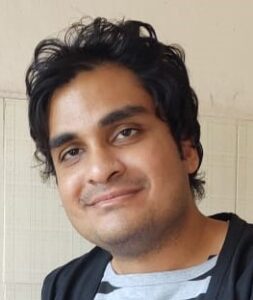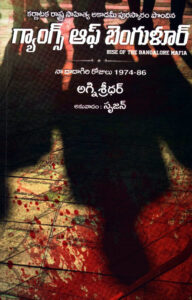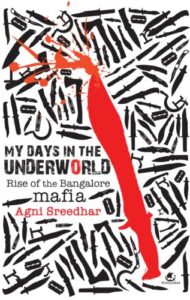Gangs of Banglore: A combination of Satya and Shiva but it isn’t fiction.
Prabhatha Rigobertha

There is no denying that Agni Sridhar has led a fascinating life. He had studied law in Bangalore and was keen on entering The Indian Civil service but circumstances took such a turn that he had to join crime. Starting from early 1980’s he found himself stuck in middle of a gang war that shaped modern Bangalore. Later on he also turned into a journalist apart from becoming a filmmaker.
Gangs of Bangalore is much more than just a tale of murder and blood, it is also about a system that runs parallel to the world that ordinary people inhabit. It is an universe with its own force and laws. It is a difficult to pen down such a detailed life and strain of it shows more than once. Gangs of Bangalore is very much readable but at the same time it is exhausting too given the number of details. It is like the author had assumed that everyone is familiar with the names. The book could have done with some serious editing.
Agni Shreedhar, alias Shreedhar Murthy, alias Sridhar, became a Bengaluru underworld don in the seventies and eighties. Reformed since then, he has been a controversial figure in Bengaluru. This is the review of his autobiographical novel Gangs Of Banglore, a telugu translation by Srujan.
The thing which I liked most about the book was his observations on the underworld and how this parallel system ran. He gives some nice insights into his associates, police officers and others. Although we have seen in films like Satya and Shiva about the connection of politicians and the underworld it still makes for an interesting read as this is an firsthand account of someone who has been in that place.
There are references to how the politicians pampered the underworld, the reason being they were of use during the elections. How the police are used by the politicians has also been vividly presented.
He says that people in Bombay do not fight for personal revenge like they do in Bangalore. These kinds of reflections elevate the book.
Towards the end of his time in the underworld Sridhar had a brush with Bombay dons and their boys. There is an interesting comment that he makes about the difference between the Bangalore and Bombay criminals. He says that people in Bombay do not fight for personal revenge like they do in Bangalore. These kinds of reflections elevate the book.
Another thing which I liked was how Agni Sridhar didn’t hide his faults and presented an objective picture of himself. At no point does he glorify what he is doing.
Read Gangs of Bangalore if you are in the mood for some history but also be prepared to have some patience.
The biggest drawback of the book is the number of characters and their inter-relationships. While Sridhar’s memory in remembering the episodes is truly remarkable but at the same time it is exhausting for the readers too. For those who are familiar with 80’s Bangalore may have an easier time but for others it is going to be an arduous task.
Read Gangs of Bangalore if you are in the mood for some history but also be prepared to have some patience.



